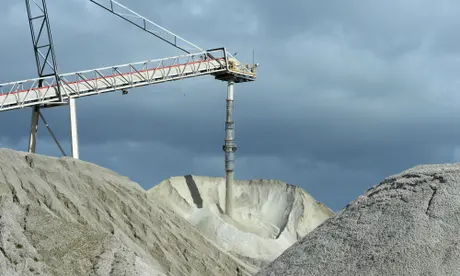India–US Trade Tensions Rise Over Steel and Auto Tariffs NMDC Limited reports a 38% drop in Q4 FY24 consolidated net profit RINL to Raise $23 Million Through Land Sales Amid Crisis

The joint venture partner in Australia's largest lithium mine is decreasing lithium production and halting one of its nickel operations as falling prices threaten to overwhelm a sector critical to the electrification of the car industry.
Due to a decline in demand for battery-grade lithium compounds, Perth-based IGO has announced output reductions at its Greenbushes facilities, close to the small West Australian mining and timber town the mine is named after. The miner also announced that it would suspend production at its Cosmos nickel operation in Washington due to falling pricing.
The decision to reduce the production of battery minerals by a well-established and comparatively low-cost miner shows how the crash in battery mineral commodities is washing through the resources sector and denting national aspirations to profit from the global transition to electric vehicles. According to benchmark prices, lithium prices have fallen more than 80% since late 2022, while nickel is down by 40%. Cobalt, another battery mineral, has lost 40% of its value.
Australia’s mining sector has started discussions with government representatives about potential tax credits, royalty relief, and emergency funding plans to keep some smaller miners afloat.
The price falls have been blamed on an oversupply of battery minerals caused by miners' rush to profit from the rise of EVs. While EV demand continues to grow, sales appetite has lagged projections, creating a supply-and-demand imbalance.
The timeline for price parity between mass-market EVs and petrol equivalents was also pushed back after COVID-19-related disruptions struck the automotive sector, delaying the planned overhaul of factories to boost EV numbers. The delay in price parity has subdued sales, with inflation-hit consumers looking for cheaper vehicles.
Also Read : Lithium prices may come under additional pressure as supply increase Oil prices rise amid Middle East focus